Astro Boy: Omega Factor - The Mightest GBA Game!
19/11/24
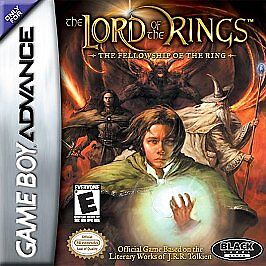
The Lord of the Rings is one of the most legendary franchises of all time - born from some of the most famous books of the 20th century, receiving arguably (and are, in my own opinion) the greatest film adaptation in history… but, pound for pound, it’s a success story that hasn’t really been replicated in the gaming sphere. Sure, we’ve got some bangers - the incredible console beat em ups in The Two Towers and Return of the King, the mechanically fascinating Mordor duology, and the iconic Battle for Middle Earth II… but none of these are remembered as amongst the best in the medium, no? In fact, in many cases, it’s pretty much the opposite, and in today’s case, we’ll be chatting about one of the most ill-remembered, poorly designed and generally reviled entries in the entire franchise. In a time before Peter Jackson’s hold on the franchise, there was the Vivendi Era of Lord of the Rings… and man, aren’t we glad it’s over now?
As a side note, I really should’ve played this before The Two Towers, shouldn’t I? Well, 70-ish games later, we’ll rectify that little misplay.
The history of The Lord of the Rings as a video game franchise is endlessly fascinating, as it can be divided into two distinct ‘eras’. Simply, you’ve got the time before the *incredible* Peter Jackson LotR’s films were even thought of, where you got all manner of weird and (less frequently) wonderful titles that lent into the more fantastical nature of the books. But on the other hand, in the post film era, whilst still frequently being excellent titles in their own right, they are nearly all homogeneous in their adaptation of Peter Jackson’s vision of Middle-Earth, stripping away much of the quote unquote ‘ancillary’ content that didn’t fit in the already tightly-packed trilogy. And so, none of these newer games have moments like Tom Bombadil, the extended journey between the Shire and Bree, the more fairytale inspired setting that made the series such a core piece of literature culture all the way back in the 40s. But then there’s the weird in-between when Jackson’s trilogy was in development and released, but Vivendi was releasing more book-faithful titles… for better or worse. Back in the day, I played the PS2 version of the game, and whilst that wasn’t particularly engaging, I hope the GBA version would fare a little bit better in my estimations… Well.
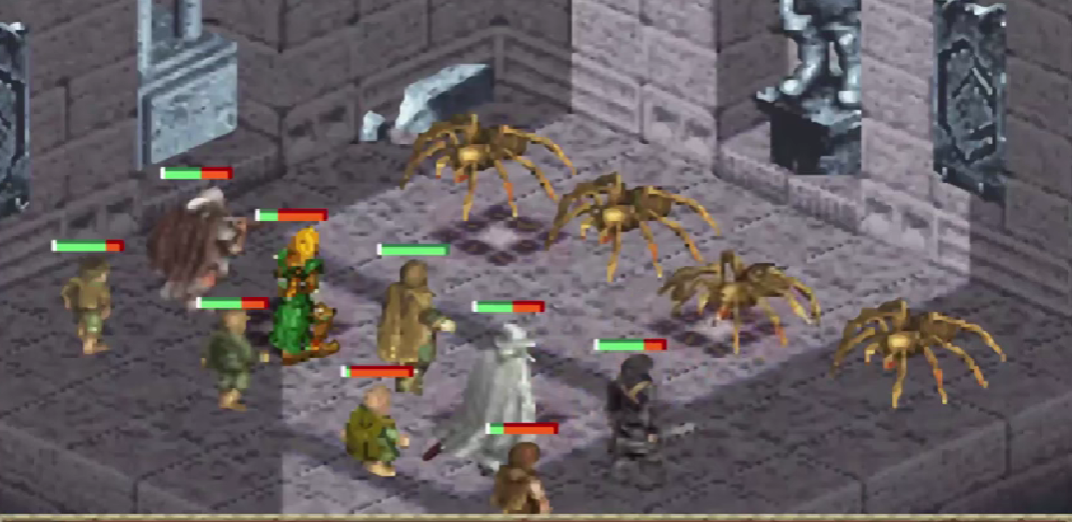
The Game Boy Advance edition of Fellowship of the Ring covers roughly the first book of the trilogy - ending with Frodo splitting from the Fellowship, but *before* the consequences of the Orc raid on the Fellowship. Whilst the details in which it covers the events of the book might be lost in the shuffle, the game haphazardly touches on all the major events of the book, particularly those which were annexed from the film adaptation, chiefly the journey to Crickhollow and the events in the Dark Forest. It’s an adaptation in the most technical sense in that entire chapters of the books are summarized in a handful of cutscenes, with none of the beauty nor nuance that made these books so incredible is utterly lost. Seriously, the transition from the Shire to Crickhollow to the Dark Forest is so rapid, there’s almost nothing in between them at all.
As opposed to the more action oriented home console version, or even its film contemporaries present on the console, Fellowship of the Ring is a bonafide - though ultimately shallow - turn-based RPG. You’ll start playing as Frodo and Sam, but as the game continues you’ll gain the other members of the Fellowship as you’d expect. You’ll do all the basics - and I mean basics, because there’s nothing to them beyond the action itself - gearing up your characters with armour and weapons, stocking up on heals, all in service of keeping you alive on your journey to Mordor - a path paved with nightmarish creatures like… uh, wolves? Various varieties of feral plants? Foes are almost as interesting as the battle system itself - which is *not* a compliment, as in all my time with the game, combat pretty much boiled down to mashing the attack button as much as I could, healing when needed, and being very, very glad that the method I played this game had a speed-up button. It’s so, so simplistic it’s not even funny.
Again, combat is turn-based, but I’d like to throw the term ‘epoch-based’ as an alternative term, because the length of these fights border on the obscene. The battles progress at an incredibly glacial pace, with enemies spending entire seconds waddling over to your gallant heroes, half-heartedly slapping or biting and them, then sauntering back whence they came, and with some fights having three or four foes, coupled with your own band… battles take a long, long, long time, which just makes their greatest detector (which we’ll get too shortly) all the more cardinal. Thankfully, there aren’t any random encounters in the game, with any non-mandatory enemies appearing out on the field… but they might as well be mandatory encounters, as the radius in which they engage is so large, slipping past them might as well be a lost cause. This otherwise mild annoyance balloons dramatically when, very early on, you learn that random encounters accomplish nothing more than to slow your party down, and drain away your precious resources.
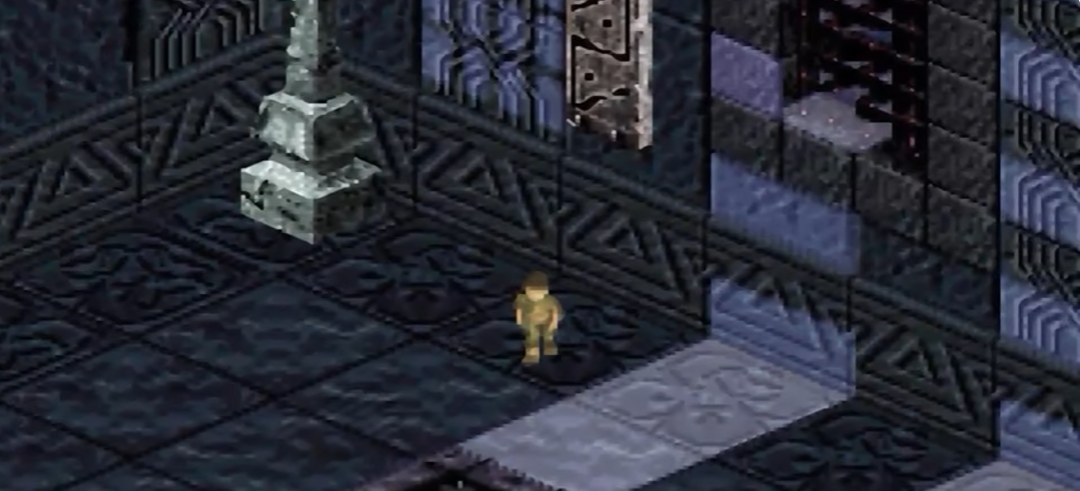
Despite being an RPG, Fellowship of the Ring absconds with a traditional level up system; rather, it uses a ‘milestone’ level up format, akin to how some people play tabletop RPGs. Rather than earning any EXP from battles, characters will level up only after completing specific tasks and battles. An early example of this is Frodo will get his first level up if he goes and ‘defeats’ the immobile, helpless Scarecrow just outside the Shire; a more obtuse example is Pippin will earn a level up if you traverse all of Farmer Maggot’s farm WITHOUT picking up the bevy of critical healing items strewn across his robust, verdant fields. It’s about growth, not only in the mechanical sense, but in regards to character development, too. Also, I use the Farmer Maggot example as a hypothetical, but I did that and got no level up, so your mileage may vary due to this game’s issues. The core approach of the game isn’t necessarily bad; making combat a background focus, giving the game an aim of growing your characters through contextual events is an interesting one, but with how buggy the game can be, how brutal later fights can be - to the point that if you don’t reach enough of these optional level ups, or raise your stats in the wrong way, you can essentially softlock yourself as you’re forced into harder and harder encounters, something which I find personally more heartbreaking then any bug. There’s no safety net or anything - you can just screw yourself, and the game’s systems aren’t intuitive enough - despite their simplicity - for you to save yourself.
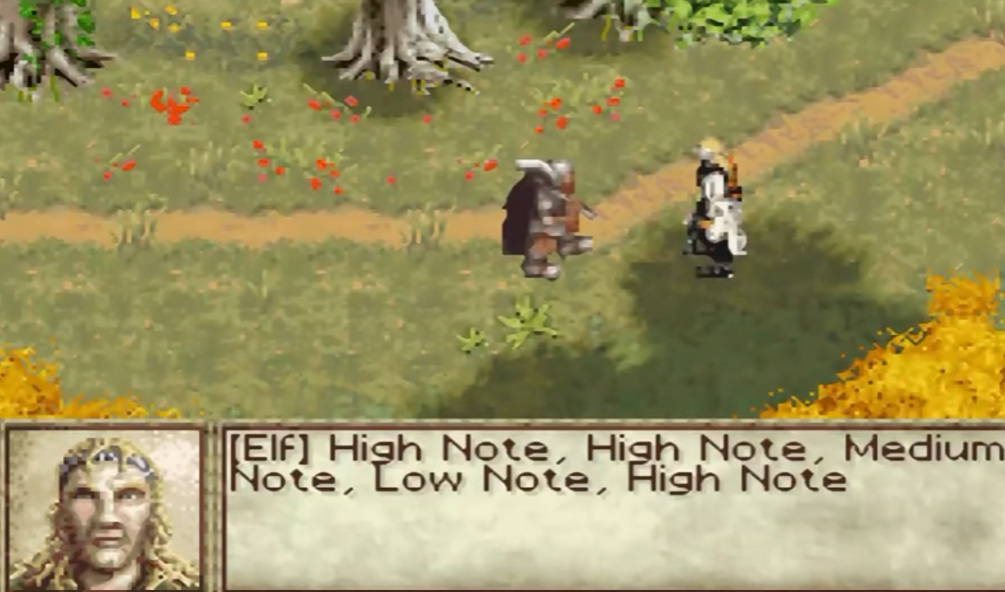
But even beyond its battle system, Fellowship of the Ring is a simplistically hollow game. Much of the game outside of battles consists of fetch quests or just stumbling upon whatever random character you need to speak to, often without any real indication of where what or who you’re looking for is lurking. You’ve always got the goal of heading towards the path trod by the Fellowship, but sometimes *how* to tread that path could be a little less abstract. Sure, there’s some fun to be had in chatting to everyone you come across, but the stock dialogue is so vapid and interesting it’s just a matter of getting even a minor clue then learning anything about Middle-Earth though them. Proper, non fetch-quest, puzzles occasionally rear their heads, but are often so simplistic that you can just brute force them without understanding or learning what you’re actually meant to be doing. Even basic RPG staples like items and shops are barebones - there aren’t even really any shops, there’s just specific NPCs with items strewn around them. Equipment progressions feels linear and boring, there aren’t really any notable skills, there’s NOTHING that sets this game apart except the fact that nothing sets it apart. No sauce, no interest, no tension.
Hell, any pre-built tension in some pretty dramatic moments are rapidly dissipated by the sudden appearance of these fetch quests; during the Dark Forest segment, Pippin and Merry are drugged and bound by a tree that is trying to consume them - Tom Bombadil makes his way to the scene, but just vibes around, waiting for Frodo and Sam to find him all manner of pointless, ancillary materials before lifting a goddamn finger to help, even as Merry and Pippin inch closer to death. The decision to focus more on the adventure of the Hobbits and the Fellowship is interesting, but it comes at the detriment of nearly everything else - and anything approaching enjoyment - in the game as a whole.
The game is also *ridiculously* buggy, which is fascinating since despite GBA games having a mass variance in quality, generally they funcion without too much hassle. But here, there are all manner of bugs and screw-ups, big and small. Characters that’ll move after giving them an intel won’t move; there are several infinite gold and item duplication tricks; sometimes, story characters simply won’t appear unless you open and close the game multiple times. Infamously, the game has a potentially game-ending bug once you reach Moria - near the end of the game as a whole - where the game will just freeze, no matter what you do. Whilst there are workarounds to the bug, considering it’s so widespread and seemingly an issue in the majority of versions of the game, it’s pretty disgraceful, especially to those who soldered through this generally unpleasant experience. When bottom tier games like American Idol, Elf, or Bratz can ‘function’ perfectly well, in all their sub-par glory, whilst a pretty notable release like a goddamn Lord of the Rings game can be so intrinsically buggy - on TOP of being mechanically flawed.
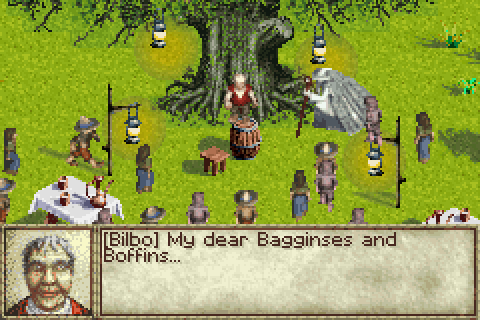
The Fellowship of the Ring’s sole saving grace - a grace that isn’t always present, mind you - is the fantastic job it does in conveying the peaceful, slow-life atmosphere that locales like the Shire embody to its very core. Music is frequently quite relaxing, especially in the domestic settings of the Shire and Crickhollow. This visual peace is, however, brutally interrupted by incredibly slow-paced, visually unengaging, and horrendous sounding battles that sound more akin to the poor operation of a can opener than anything resembling a catchy battle theme. Hell, even when you’re trying to soak in the pleasant vibes of this game, being greeted with some of the worst character images I’ve ever seen in a game (seriously, I couldn't pick half these characters out of a lineup!), presenting designs so genuinely scuffed they look like they belong in a weird avant-garde horror game instead. This graphical disharmony is further in focus when the area designs, which whilst frequently blurry, can look charming in their own retro way, become nightmares to navigate as you fight to work out what’s a door, what’s a wall, and why the hell does that wall look like a door!?
At best, simplistic and peaceful; at worst, fiddly, frustrating, and downright hideous, The Lord of the Rings: The Fellowship of the Ring is a ridiculous mess of a game. A swan song that marked the end of ‘classic’ Lord of the Rings video games is nothing more than the ugliest duckling imaginable, Fellowship of the Ring’s occasionally charming vibes can’t stem the tide of boredom, repetitive, uninteractive combat, or the cardinal sin of game breaking bugs that can kill your progress at any moment. Fellowship of the Ring might stand amongst the worst ‘non-shovelware’ games I’ve played thus far for this website, seemingly having some kind of budget and ambition behind it, but sadly, nearly every ambition is clambers towards isn’t just unmet - they’re still frozen, somewhere at the end of Moria, with all those broken save games.
Thanks for reading my review of The Lord of the Rings: The Fellowship of the Ring on the Game Boy Abyss! Another day, another disappointment. Ah well. As always, you can find me on BlueSky under GameBoyAbyss, on Twitch.tv under the same name, and email me over at mgeorge7003@hotmail.com if you have any questions or requests. Thanks against for reading, and I’ll see you next time!
